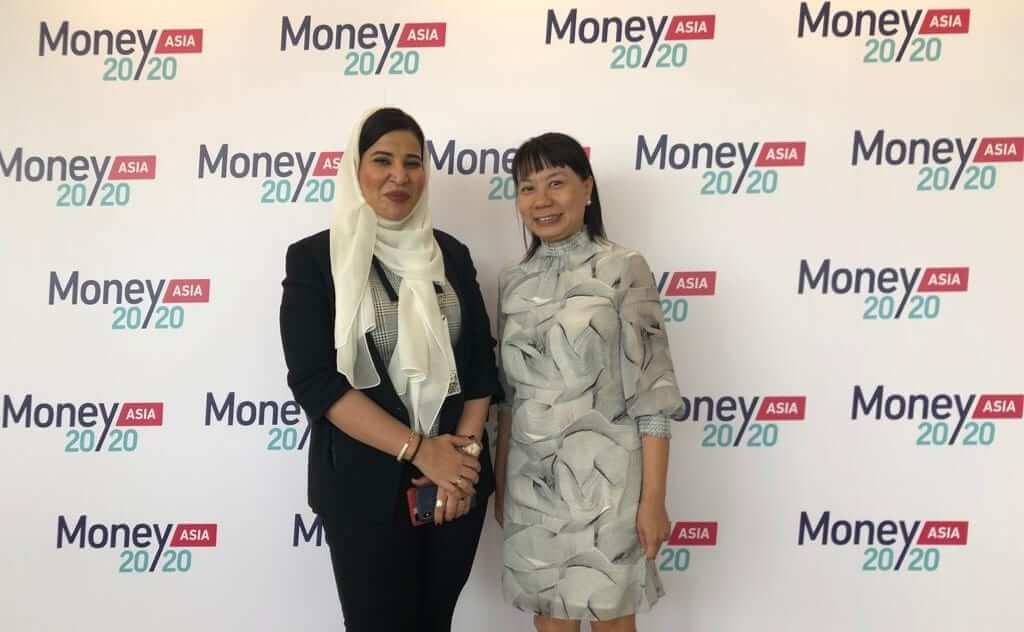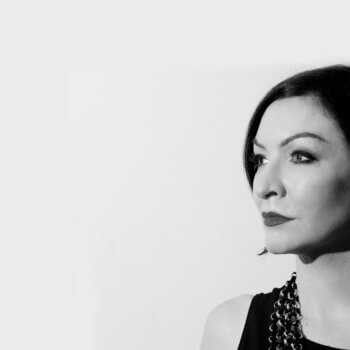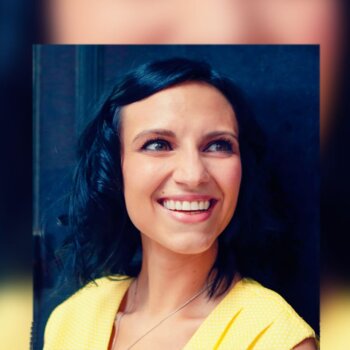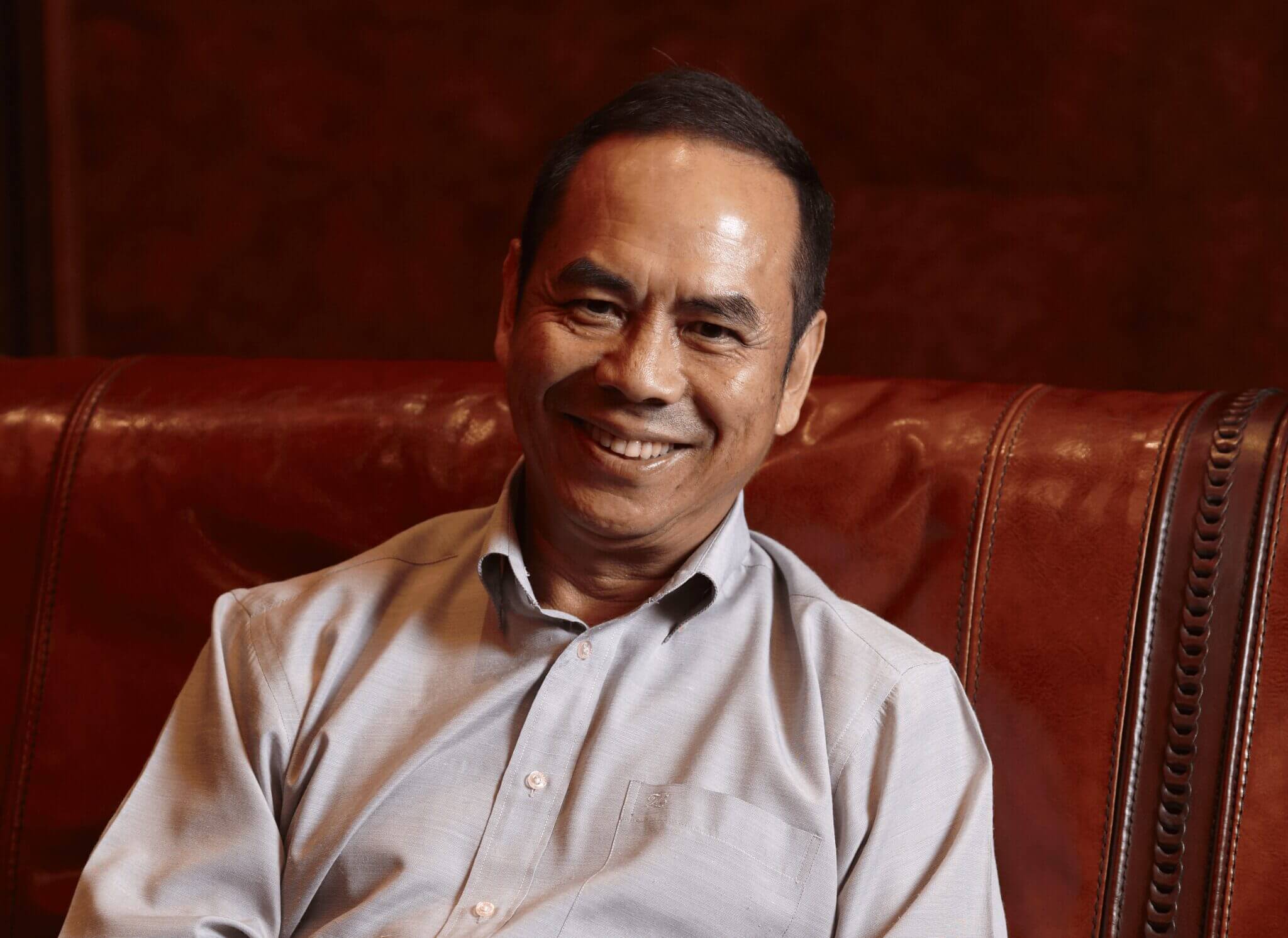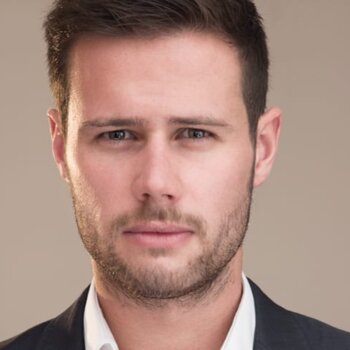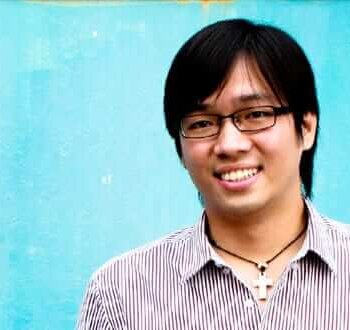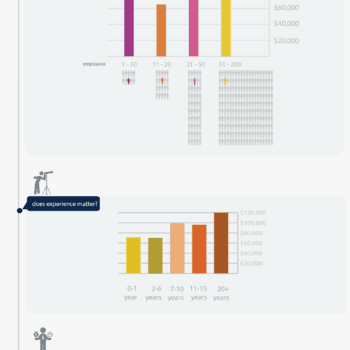(Women on Top in Tech is a series about Women Founders, CEOs, and Leaders in technology. It aims to amplify and bring to the fore diversity in leadership technology.)
I met Raja at Money 20/20 Asia where the world’s senior leaders across Payments, Financial Services, and FinTech come together to network and connect over the critical developments shaping the future of money in Asia and to grow and future-proof their businesses. She is the Executive Vice President of FinTech Hive at the Dubai International Financial Centre (DIFC). FinTech Hive at DIFC has been ranked 10th Global Fintech Hub and the 3rd Global Islamic Fintech Hub. She is also in Top 100 women in Fintech and an executive graduate from Harvard Business School. She holds an MBA in Global Leadership and Management from the United Arab Emirates University. She is also a board member of the Harvard Business School MENA and Central Asia Advisory Board based in Boston and is the Vice President of Harvard Business School Club for the GCC.
What makes you do what you do?
I am building a new sector and building and contributing into a new economy and creating an ecosystem; I am creating jobs, I am developing talent. I find the unique purpose in doing all of this because I am contributing to the development of this world and this is why I am doing it.
How did it end up being your mission?
I had an interesting career. I started as a coder, I came from IT background – Tech background, and spent most of my life in technology and then when I joined the International Financial Center, I did not have any background in Finance, I was the head of IT, and took over operations and then corporate development. I went for an executive education program in Harvard business school. They told me that I could be whoever I want to be – I can change the world so I came back and I was like, ‘You know what? I do not want to be at the back office anymore. I want to be client facing and I want to understand this business from a business perspective. I want to talk to the client and I want to help grow the sector, not only support it.’
So I had a conversation with the governor and spoke to them about my interest and they supported me. I moved to Marketing and Business development and spent two years there.
Most of my friends were not happy. They thought that that it was downgrading from being a Tech Engineer to Marketing and Business Development; but I knew I was there for a reason. I just could not figure out back then. While I was in the marketing role, we started working on the Fintech strategy and that started to really become appealing to me. It was perfect. I had the IT background and it created so many opportunities for the start-ups, to join the ecosystem and disrupt this financial statuses sector. So again, I spoke to my boss, and I spoke to his boss and I spoke to everyone. I told them that I really want to do this job – and they said, “Oh, but how much do you know about Fintech?” I was like, ‘As much as you do.’ I mean, yes it is a new sector and there is a lot to learn but I know that I will be able to develop. So they said, “Okay, we will give you the opportunity to run this Accelerator and if you do a great job, we will transfer you there.”
So after six months and a super successful program I was appointed as Executive Vice President.
How did you take on this role especially since this is perhaps a stretch or challenge for you?
I am a person that is driven by challenge so when there is a problem, I want to fix it. When there is a challenge, I want to overcome this challenge so I am excited about challenges and things people think they cannot do. You know, when I decided to study technology in the UAE in 1991; all my friends they told me, “Do not do it.” Everyone – the business, administration, or communications they were like, “Technology? It is difficult, nobody is doing it.” And I said, ‘I will do it just because it is a challenge.’ So, I am driven by challenge. I thought it is exciting because it is new and there are not so many people in this domain right now and it could be an opportunity for me to grow in this industry from the very beginning.
I have six sisters. They are all housewives. They are all living the good life. They take care of their families and their kids. I am the only one who is working, and my family has always asked me, “Why are you doing this? “Why are you not focusing on your kids, on your family?”
“You don’t need to work.” I said, ‘Yes, I do not need to work – I want to work. I want to prove myself. I want to contribute to my world, to my community, to my country. This is a way for me to give back and I find my energy giving back.’ So, the more I engage, the more I deliver; I feel my energy is boosting and I engage in further projects.
Do you have a mentor that you look up to in the industry or did you look for one and how did that work?
I have a role model. Christine Lagarde is my role model. If she was able to make it to the head of the World Bank, I could. Do I have a mentor? Not a specific one, but I learn from every lady that I meet. I have been part of a couple of woman initiatives and I see how much they are trying to build infrastructure for women to grow and develop in their countries and to join boards of companies to be in executive roles.
I do a lot of mentoring myself. I have few mentees from Dubai, from Saudi Arabia, from India, from Indonesia and I love working with these women because if I feel that I am contributing even one percent to their lives, it makes me fulfilled. I did not have a dedicated mentor, because at this level it becomes really difficult to take a mentor’s time and most of the women that I look up to are established women, career women, successful family, kids, managing really complicated lives; so, I do not think I want to take more of their time. But the time that I get to spend with them, I actually try and observe as much of the qualities that will enable me to be like them.
You feel that even helping one percent of women leaders is very important. Why?
It is absolutely important because you are helping a woman understand the work environment that she is in and struggling with. I have been working for 23 years and I have been challenged so many times in my career especially when I did not have access to a mentor, I did not have access to advice, my family did not want me to even work.
I could not find help and I had to go through these situations alone only to understand a couple of years later the better way to deal with these challenges. If I can help this woman, save one or two years of her life to understand how to work with company politics or corporate issues or dealing with men, diversity issues, why not?
How do you match mentees with you?
Now I am open to any woman who is actually seeking mentorship. I always tell the woman that it is okay to ask for help. I work with a lot of entrepreneurs, all of them are men and they think I work for them, ‘Raja, can you do this for me? ‘Can you do that for me?’ and that is only men. Women will not say anything and that is where I realized that in my career I needed to ask for help.
But our psychology or our upbringing does not give us that confidence to ask for things or ask for help. So, when I see a woman that is maybe stuck, I try to offer some advice. I get requests, like for example, I get a request from a girl in Saudi Arabia on LinkedIn and she said, “Raja, I am impressed with your profile, would you please be my mentor?” I said ‘I would love to!’
“I mean, what would it cost me?” ‘Nothing!’ I get on the phone, she came to Dubai, we had a meeting and we had a conversation. She wants to grow in financial services and it is male-dominated, and she is in Saudi Arabia. I am happy to open doors for her to connect her within the ecosystem and give her the advice that she needs to gradually build her profile and her confidence as well. I am not very picky, I try to help as much as I can because as I told you I always believe in energy and whatever you are giving back to others will always come back to you.
How do you build your networks when no one has supported you? But you still have this network now that you can invite people to help each other? How did that happen?
I have always invested my time in helping others and all of these people are available to me today because they are good people. When I reach out to anyone they know who I am and they know what I stand for and they believe in me so this network is only expanding.
I have time for my kids, I have time for my husband, I have time for my work, I have time for my mother, I have time for my friends, and I think women are created in a very unique way that enables us to really give attention and focus to everyone in our close circle and the way they deserve it. I do not believe someone who tells you, “I do not have time to do this.” It only means that thing is not important to them if it was important and it is in your circle of influence you will find the time to do it.
How do you generate this self-energy, you say you give energy and come back?
I generate energy from my children. I love children and I think they are so pure; their energy is so pure, so I try to spend a lot of time with my kids in the morning, especially because that is the only quality time I will have when everything is quiet and blissful and for me that charges me for the full day.
As a leader, how do you spot, develop, keep and grow your talent?
First of all, as a leader you have to be true to yourself, so I believe in authentic leaders and when I am recruiting for a team I follow my intuition. I believe in energy and if I am with that person, for five minutes and I feel something is wrong, I have my gut for a reason. I completely take the person out.
I am very clear of my expectations from the very beginning so that they know what they are getting into. It is a great organization, it has good pay, but if we are have to sweep the floor at the end of the day, we will do it. That is where you match their expectation from the very beginning. You know I tell them, once you are hired or once you are working with me, I will give you a list of the work that you will have to do. I do not care how you do it. You do it in the morning, you do it at night, I do not care; that is not my problem, that is yours as long as it gets done. Then if I feel that they are not following the right path I would call them for a chat.
I am not a micromanager, I did not hire them to do their job for them. I hired them to take on that responsibility and to be creative as well while doing it. So I give them a lot of freedom, but if I see them deviating I would call them in, go for coffee, lunch and have an open conversation, realign, and then continue.
Do you find it easy to get your talent now from your region?
Absolutely! There are a lot of amazing women in our region, super talented, a lot of them are in technology. A lot of them are eager to create change and to be part of that change. My team is 100 percent women and in my previous role, I had 85 percent of women on my team. They happen to be women. I do not consciously go look for women, but they are the best talent that is out there.
Any general rule of thumb in your industry and in your country?
In my industry and in my country, you really have to always have an open mind because I am in innovation industry. Whether they are in innovation and financial services or it is innovation and agriculture and innovation and technology, at the end of the day, innovation needs an open mind to look at that.
You should be prepared to work with different scenarios. One start-up would do great and raise all the funds and be successful. One startup, actually 1 out of 10 will probably make it, the rest will not, but that does not mean that they are not good people or they are not good technology; it just means that they did not get it right the first time.
So you have to be open to success and also accept failure when it happens because there is no success without failure. Keep an open mind, try and try it and try it all the time to be able to find the right match for the right environment, because there might be technology that is super successful in Singapore but you bring it to Dubai you get stuck with it the and it does not progress. This does not mean that this technology is not good, it means the environment is not ready for this technology yet so you have to be open to others’ feedback, to other’s opinions and to different situations to be able to get the best out of this innovation.
Any advice for others and please share here what you are up to next and where you want to focus people’s attention to?
My advice to others especially in the entrepreneurial world is to believe in yourself because you portray your confidence to the public. If you believe in yourself, all of them will believe in you.If you doubt yourself one percent, they will feel it and they will doubt you. So you need to be one hundred percent confident of yourself, of the technology that you are developing and also for the things that you are asking for. You can ask for the world, there is no limit. That is my advice: to knock every single door, some of them might not open but that is not the end of the world.
I am launching a women in financial innovation initiative called Accelerator. I have 22 financial institutions that are part of my innovation journey. I have asked each of them to nominate a senior person as a mentor and a high potential woman from their organizations to join my programme.
We are going to match the senior mentors with the high potential from different institutions so that they get mentorship for a year, all the way till March next year. At the same time, we will include this high potential woman, who will design a full day workshop for them that talks about career development, presentations, media interviews and how to build their network; and we will also involve them in the innovation camp that we are designing for the start-ups that are joining our programme. The women will get access to educational workshops, networks and we will graduate them next year here in Dubai but it is in participation with the financial institutions which are global banks like HSBC, Visa, Bank from Saudi Arabia and Jordan.
For this programme, we do not operate within the rules because we are an innovative company. I know we can grow this initiative but we are piloting this year with 22 banks, and then if we find that the results are satisfactory then we will probably hire someone to manage this program specifically and maybe ask the banks to contribute.
If you’d like to get in touch with Raja Al Mazrouei, please feel free to reach out to her on LinkedIn. https://www.linkedin.com/in/raja1/
To learn more about FinTech HIVE at DIFC, visit https://fintechhive.difc.ae/
